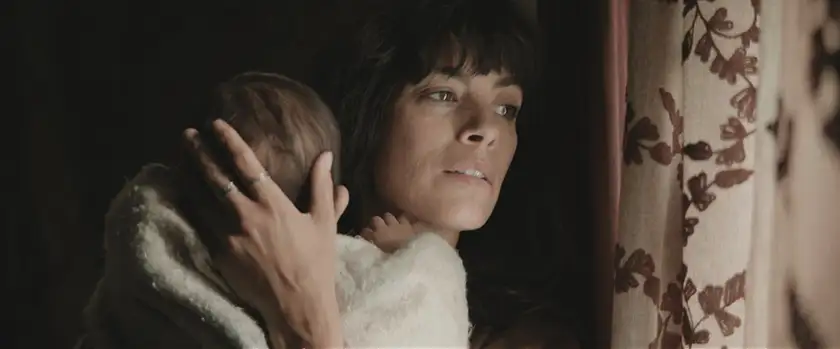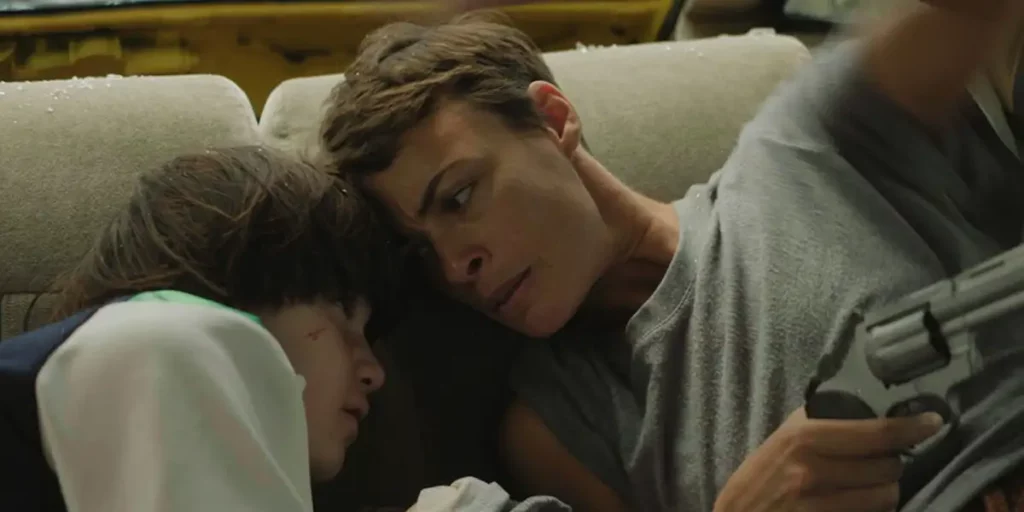In Mexico 86, César Díaz navigates the fallout of civil war on Guatemalan citizens with an autobiographical account of an activist mother and her young son.
Director: César Diaz
Genre: Drama
Run Time: 89′
Locarno Screening: August 10, 2024
Release Date: TBA
Where to watch: Locarno Film Festival
In Mexico 86’s intense opening, César Díaz wastes no time in getting to the crux of his latest film. Nice music and a baby softly crying lasts for all of around ten seconds, before the score darkens and the baby’s sounds become distressed. This is, as might be expected in a film about the Guatemalan Civil War, one of the few happy moments in Mexico 86. Breaking the tranquillity, a pivotal murder takes place in the street outside Maria’s (Bérénice Béjo, Another End) house.
The event forces the rebel activist to flee her home country, leaving her baby behind in what she hopes will be a safer environment with his grandmother.
With his Caméra d’Or-winning film Our Mothers (2019), Díaz looked at the civil war of his home country through the lens of the present day. Our Mothers is set in 2018 and deals with the decades long fallout from the brutal military dictatorship in Guatemala; in contrast, Mexico 86 is, as the title suggests, set in 1986 (the film’s brief opening sequence is set ten years earlier in the 1970s). Whilst it might be set in Mexico, the urgency and danger caused by the Guatemalan Civil War is tangible, and the terror follows Maria even a decade later.
Díaz presents a story and history of intense suffering with real feeling, empathy, and truth, which is unsurprising considering Mexico 86 is based on his childhood experiences. Born in 1978 during the civil war, Díaz’s mother rallied against the dictatorship, and as a result had to go into exile in Mexico when Díaz was young. Mexico 86 isn’t directly autobiographical in terms of its details or specifics, but it is undoubtedly true to Díaz’s own emotions and experiences. This ensures Mexico 86 is a respectful observation of this period Guatemalan history, as opposed to a cheap thriller which could have been the case.

Compounding the drama and terror is a stunning original score by Rémi Boubal (Our Mothers), which either thunders darkly or quietens mournfully at exactly the right times. Mexico 86 is restrained in tone; the quietest moments of the film are its most powerful, such as when Maria takes off her wig and jewellery after a long day at work in her everyday disguise. Such a pared back style also makes the infrequent moments of violence that much more shocking, drilling home the terror of this regime that haunted people across the continent. True to his documentarian roots, Díaz also utilises real footage to drive home the sobering reality of the true-to-life scenes.
Béjo is tremendous as Maria, with a final scene showcasing some of the best acting so far this year. Like its lead actor, Mexico 86 is always intensely watchable, but its screenplay falters slightly. We never really get to know Maria on a deeper level, with Díaz never quite delving into her mind enough, which in turn would have presented the opportunity for a complex navigation of Guatemalan citizens and their own experiences of the war. The emotions can still be keenly felt, but there is something lacking to the depth of Maria as a main protagonist. Nevertheless, Mexico 86 is tense, nerve-jangling, and, above all else, quietly horrifying. For this accurate representation of a long period of such intense political violence and repression, it can only be praised.
Mexico 86 was screened at the Locarno Film Festival on August 10, 2024. Read our review of Cadejo Blanco!

